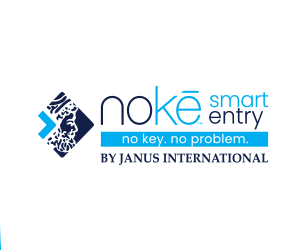By The Buffalo News
On a cold, rainy day in December, Joseph Russell Jr., the CEO of Public Storage, the largest self-storage company in the industry, called Joseph Saffire, CEO of Amherst-based Life Storage. He had a very important question: Would Saffire be interested in Life Storage being acquired by California-based Public Storage?
The acquisition of Life Storage by Extra Space was the result of a long push-and-pull between would-be buyers and Life Storage leadership. Photo: Libby March
Saffire didn’t immediately answer, and the initial inclination of Life Storage’s board and management was that they preferred to stay independent.
But Russell’s inquiry nevertheless set in motion a series of events over three-and-a half months that Life Storage executives and directors couldn’t stop, pushing the company into the arms of another suitor, Extra Space Storage.
Public Storage and Extra Space were vying to buy Life Storage, sweetening their offers along the way. A third potential buyer thought about it but didn’t make an offer.
Private investors made it known they might like to be part of a different type of deal.Big shareholders pushed Life Storage’s management and directors to sell.
Along the way, Life Storage board members weighed a crucial question: accept an offer or keep growing the company on its own? In the end, they decided to sell.
Extra Space’s deal, presently valued at $11.5 billion, is a windfall for Life Storage executives. Saffire is in line for a compensation package worth nearly $34 million, predominantly in stock, according to documents filed with regulators.
It’s also good for Life Storage shareholders, who will reap a 32% gain when the deal closes, compared with what their shares were worth before news of Public Storage’s bid first became public.
But it’s also bad for as many as 116 of Life Storage’s local workers, who will lose their jobs after Extra Space takes over.
Life Storage, which went public in 1995, is among the small number of publicly traded companies based in the Buffalo area. The deal is a reminder of how pressure from shareholders and rival bidders can determine the fate of publicly held companies.
A public push
After Russell contacted Saffire, officials from the two companies subsequently talked, with Public Storage proposing an all-stock transaction.
Later that month, Life Storage’s board met, along with management and the company’s legal and financial advisers. The board talked about the proposal, as well as Life Storage’s strategic plan for growth.
The board decided not to continue discussions with Public Storage, and notified Public Storage of its decision.
But Public Storage didn’t go away.
On Jan. 12, Russell called Saffire to tell him Public Storage was still interested. That same day, Public Storage submitted a preliminary, nonbinding offer, valued at $124.12 per Life Storage share.
Life Storage’s board met Jan. 30. The directors decided Public Storage’s offer – while representing a premium to recent trading prices for Life Storage’s stock – was “not in the best interest of Life Storage shareholders.” They rejected the offer.
But Life Storage also started to consider other alternatives.
That same week, Saffire communicated with the CEO of an unidentified “large self-storage company,” referred to only as “Party A.” Meetings were scheduled between Saffire, Life Storage chairman Mark Barberio and Party A’s CEO for early February.
Public Storage still wasn’t giving up, reiterating its proposal in a Feb. 5 letter to Life Storage. And for the first time, Public Storage made its plans publicly known. The company announced an $11 billion bid that would pay shareholders a 17% premium over market value at the time.
Public Storage executives Russell and chairman Ronald Havner Jr. shared their frustration in a letter to Life Storage executives.
“We believe your persistent unwillingness to engage in discussions regarding this highly beneficial transaction is contrary to the interests of your shareholders,” they wrote.
Meanwhile, Saffire and Barberio met with the Party A CEO and a member of its board. At the end, Party A’s CEO declined to continue discussions in the near term, but left the door open for future talks.
Life Storage’s board met Feb. 9 and discussed, among other things, how Public Storage had taken its acquisition bid public. In the end, the board rejected Public Storage’s offer, saying it undervalued Life Storage and discounted its prospects to grow even further. Life Storage made plans to release that news Feb. 16.
Extra Space gets ready
Meanwhile, in Utah, a new contender was about to enter the fray. Extra Space’s board met for a regular meeting Feb. 15 and discussed Public Storage’s bid for Life Storage.
Joseph Margolis, Extra Space’s CEO, noted that his company had considered a potential deal with Life Storage in the past. The board told its management to be ready to respond to outreach from Life Storage about a possible combination.After Life Storage announced Feb. 16 it had rejected Public Storage’s deal, Life Storage chairman Barberio called Ronald Havner Jr., Public Storage’s chairman. They left open the possibility of future discussions between the two companies. Financial advisers for the two companies discussed exchanging information in order to assist Public Storage with submitting an “enhanced proposal.”
Life Storage’s board met Feb. 28. The company’s management talked about communications Life Storage had received from “significant shareholders” and industry analysts after the company released its quarterly and full-year earnings. Company leaders said stockholders were urging Life Storage to engage with Public Storage and other potential partners, including to find out if a higher price could be had.
On March 3, Saffire made what turned out to be a consequential call. He contacted Extra Space’s CEO, Margolis, to ask if Extra Space would be interested in talking about a deal. Margolis said Extra Space had strong interest, and they agreed to meet five days later in Sarasota, Fla.
“We are confident it represents the best path forward for our business,” Saffire said as the deal was announced.
Sweetening their offers
At Life Storage’s urging, Public Storage and Extra Space bumped up their offers. Life Storage wanted to wrap up the process in late March.
Public Storage sweetened its offer by 5% over its initial proposal. Barberio and Saffire urged Public Storage to “put its best foot forward” with a higher offer. Public Storage responded with another increase, boosting the value of its proposal by 10% over its initial proposal.
Meanwhile, Extra Space submitted a revised offer for Life Storage shares representing a 7.2% increase in value over its initial proposal.
The bidding was over. Extra Space’s offer was a bit higher.
On April 1, Life Storage’s board chose Extra Space’s offer, which would pay $142.85 per share – based on the closing price of Extra Space shares on March 31 – versus Public Storage’s offer, which had a value of $140.50 per share. Life Storage and Extra Space executed an agreement on April 2 and announced their deal the following morning, before the start of the trading day.
“We are confident it represents the best path forward for our business,” Saffire said as the deal was announced.
The fallout
The deal is now valued at $11.5 billion, and $146.17 per share, based on the closing price of Extra Space’s shares as of May 30. (The actual purchase price will be based on the closing price of Extra Space’s shares on the deal’s closing date.)
The effects of the deal are starting to hit home.
Life Storage has notified the state Labor Department that 116 local jobs – out of 248 total – will be eliminated. The cuts will start in late July, after shareholder votes scheduled for July 18. Extra Space says it will keep nearly 88% of Life Storage’s employees nationwide, and will continue to operate the Amherst administrative office.
Three Life Storage directors – Saffire, Barberio and Susan Harnett – are set to join Extra Space’s board.
Along with Saffire, three other Life Storage executives are due compensation packages worth millions of dollars, according to a filing with regulators.
David Dodman, the chief operating officer, is in line for $9.5 million in compensation, including about $2.9 million in cash. Alexander Gress, the chief financial officer, is in line for $7 million in total compensation, including nearly $3 million in cash.
And Andrew Gregoire, who retired as CFO in January, is due to receive $3 million in compensation, nearly all of it in Extra Space stock.






























